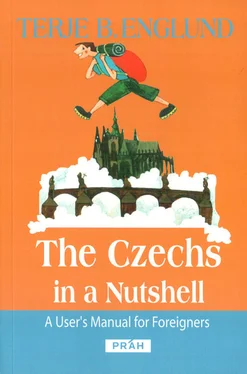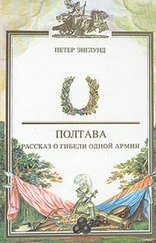So are Czech women today generally oppressed? Compared to some Western countries, there are still few women in top politics (among the 200 members of the Parliament’s House of Deputies elected in 2002, there were 34 women) and business managements. And those who have fought their way up must often endure extreme chauvinism (a newspaper cartoonist once portrayed the Social Democrats’ former vice chair Petra Buzková as a prostitute with the party chairman as her pimp). Moreover, Czech women are still paid less than men for doing the same job, even though the labour law strictly prohibits such discrimination.
Unfortunately, this goes for a lot of other developed countries too. In fact, when you compare this country with the rest of post-communist Central Europe, Czech women, measured by their level of education, which on average is higher than Czech men’s, their legal protection and their participation in decision-making bodies (more than half of the country’s judges are women), fare better than in any other state.
Generally, their situation doesn’t differ significantly from that in Austria, which, admittedly, isn’t exactly a feminist heaven on earth, but at least this comparison indicates that the need for urgent intervention is not as acute as several international activist groups in the beginning of the 1990s believed. Seen in a historic context, one can even, with some artistic liberty, claim that the first Czech state was established by a woman.
According to Staré Pověsti České (Old Czech Tales), a collection of historic myths published by the writer Alois Jirásek in 1894, the Premyslíd Dynasty of princes, who were later to become Czech kings, was founded when the strong-willed Princess Libuše ordered her guards to find her a man. The guards set off, and when they ran into a plain farmer who was ploughing his fields, they brought him back to the princess. Thus, Přemysl the hard-working ploughman became the fabled Libuše’s husband and head of the Czech principality.
But the story about Libuše and Přemysl can also be seen from another perspective. Thanks to her position as princess, there’s no doubt that Libuše was the boss, and poor Přemysl was only used as a convenient cover and sperm donor. In other words, it was an undercover matriarchy. A millennium and a half later, the Czech tradition of women letting their husbands officially act as tough macho men while, in reality, they are totally controlled by their bossy wives, is still alive and kicking. The famous comic Jan Werich once defined this balance of power very precisely: In my family, I decide all the important things, such as our relationship with Taiwan. My wife is only responsible for the rest...
Božena Němcová is another female monument in Czech history. Born in 1820 to poor parents, she lived a desperately unglamorous life caring for her children and hiding from her drunk and abusive husband. Nevertheless, when she finally managed to publish her novel Babička (Grandmother) shortly before she died, at 42, she became a national star overnight.
A somewhat cynical observer may find the novel utterly sentimental, and grandmother herself hopelessly bigoted. But the point is that not one single chauvinist stood up and brushed Němcová off for “just being a stupid woman”, and nobody complained that the novel’s grey-haired herowas as anti-masculine as it is possible to get. The probable explanation is that the novel, whether written by a man or woman, was first and foremost seen as a literary victory for the Czechs, who felt dwarfed by German cultural suppression.
Actually, this nationalistic aspect might have a wider importance for the relationship between Czech men and women. Jiřina Šiklová, professor of sociology and founder of gender studies at Charles University in Prague, points out that because of the Czechs’ long-lasting experience with foreigndomination — be it by the Austrians, Germans or Russians — most Czech women don’t feel oppressed by men. On the contrary, they feel solidarity with them as compatriots.
Maybe professor Šiklová has a too positive attitude, but, on the other hand, she definitely knows what she is talking about. As a supporter of the Charter 77movement, Šiklová and many other women resisted the communists with great courage and in total solidarity with their male fellow-dissidents.
That also goes for Charlotte and Alice Masaryk, wife and eldest daughter of Tomáš G. Masaryk, Czechoslovakia’s “founder”. During the First World War, when the later president’s struggle for national independence brought his family great suffering and himself exile, they stood by his side. And after 1918, both Masaryk and his family used their influence to promote equal rights for women, who were secured the vote by the independent Czechoslovakia’s constitution (see: First Republic). The president himself stressed the importance of women’s emancipation so intensely (“Women are often more valuable humans than men”) that he has been called the first Czech feminist. He even took his American wife’s maiden name Garrigue as his second surnameto demonstrate that he considered her his equal.
Neither should one forget that the Catholic Church, which hardly can be accused of having a tremendously progressive stance towards women’s emancipation, has never enjoyed really massive support in Bohemia, traditionally the Czech state’s centre of political gravity. The Hussite Church, on the other hand, which emerged as a “national” church shortly after Czechoslovakia was established, took an overtly liberal stance on the issue of women’s liberation. Today, a clear majority of its approximately 100,000 registered members are females (see: Religion).
So, what will the future bring? By now, an entire generation of women who never had any personal contact with the communist regime have come of age. Unlike their elder sisters, they don’t automatically consider feminism to be a downright dirty word, and not few of them nourish ambitions of having a professional career.
Yet (early) marriage and subsequent motherhood still seem to be a more obvious and unambiguous goal for young Czech women than is common in Western and Northern Europe. And still, most Czech women expect to be treated as women (see: Dancing Schools). Okay, unlike Polish women they don’t fancy a chivalric kiss on their hand, but any well-mannered man is supposed to open the door for a woman, let her enter before him and, on some occasions, help her with her coat. In the Czech Republic, a man can even risk praising a woman’s beauty in public without being called a sexist monkey, or, as in Scandinavia, being knocked down on the spot.
In short: it seems that young Czech women are trying harder and harder to combine the cool self-confidence of a Western feminist with the proud womanliness of a South European sexbomb (see: Sandals and Socks). And — just to be a bit chauvinistic — it’s amazing how they succeed in doing it!
Most countries have a certain period that they romantically cherish as their golden era. Thanks to their roller coaster history, the Czechs have more of these ups and downs than most other nations, but if there is one period which a vast majority of contemporary Czechs, right or wrong, would consider an indisputable golden era, then it is the First Republic — Czechoslovakia from its foundation in October 1918 to the tragic Munich Agreementalmost precisely 20 years later.
It’s not hard to understand why. When the founding of Czechoslovakia was announced and the enthusiastic masses started to tear down any symbol of their former Austrianmasters (or oppressors, as Czech nationalists would put it) a dream almost 300 years old had come true. But more than that: the creation of Czechoslovakia and the collapse of Austria- Hungarymarked the end of the then-most-bloody war in man’s history. The monuments you can still see in almost any Bohemianand Moravianvillage are a reminder of the 210,000 young Czechs who lost their lives in the First World War’s meaningless slaughter.
Читать дальше








![Theresa Cheung - The Dream Dictionary from A to Z [Revised edition] - The Ultimate A–Z to Interpret the Secrets of Your Dreams](/books/692092/theresa-cheung-the-dream-dictionary-from-a-to-z-r-thumb.webp)



